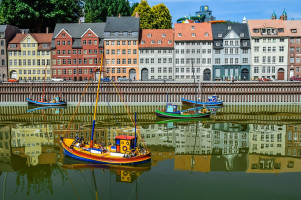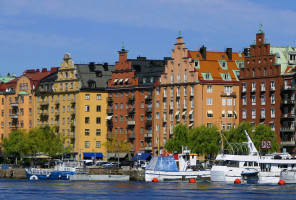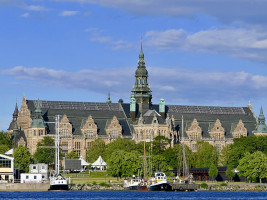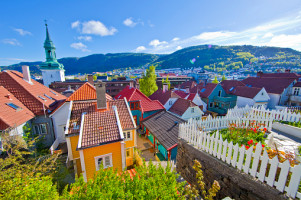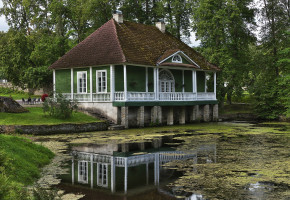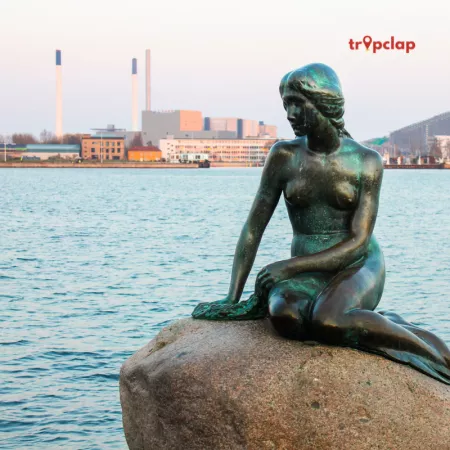
Copenhagen Travel Guide
Copenhagen, the capital of Denmark, is a vibrant city known for its rich history, beautiful architecture, and progressive culture. Situated on the eastern coast of the island of Zealand, Copenhagen boasts a fascinating mix of old-world charm and modern innovation. The city is famous for its fairy-tale-like castles, picturesque canals, and being one of the most environmentally friendly cities in the world.Top Attractions in Copenhagen
- Tivoli Gardens
- The Little Mermaid Statue
- Nyhavn Harbor
- Rosenborg Castle
- Christiansborg Palace
Copenhagen is Famous for
Being one of the most environmentally friendly cities in the world.Top Attractions in Copenhagen
- Exploring the colorful Nyhavn Harbor
- Visiting the iconic Little Mermaid Statue
- Indulging in the magical atmosphere of Tivoli Gardens
- Discovering the history of Rosenborg Castle
- Ascending the Round Tower for panoramic views
What's Great about Travelling to Copenhagen?
- Rich history and culture
- Beautiful architecture and design
- Green and sustainable practices
- Friendly and welcoming locals
What's Not So Great about Travelling to Copenhagen?
- High cost of living
- Cold weather in winter
- Crowded tourist areas
- Language barrier for non-Danish speakers
Travel Tips for Copenhagen
- Check visa requirements before your trip
- Use public transportation or rent a bike to get around
- Keep an eye on your belongings in crowded areas
- Stay aware of cyclists on the roads
Important Copenhagen trip information
- Ideal Duration: 3-4 days
- Best Time to Visit: May to September for milder weather
- Nearby Airports and Railway Stations: Copenhagen Airport and Central Station
Per Person
57,648
*EXCLUDING APPLICABLE TAXES 5.0 Ratings
( 396 Reviews )
( 396 Reviews )
Per Person
70,619
*EXCLUDING APPLICABLE TAXES 5.0 Ratings
( 396 Reviews )
( 396 Reviews )
Per Person
86,472
*EXCLUDING APPLICABLE TAXES 5.0 Ratings
( 396 Reviews )
( 396 Reviews )
Per Person
1,56,522
*EXCLUDING APPLICABLE TAXES 5.0 Ratings
( 396 Reviews )
( 396 Reviews )
Per Person
1,15,295
*EXCLUDING APPLICABLE TAXES 5.0 Ratings
( 396 Reviews )
( 396 Reviews )
Per Person
62,932
*EXCLUDING APPLICABLE TAXES 5.0 Ratings
( 396 Reviews )
( 396 Reviews )
FAQ's on Copenhagen
Q1: What is the best time to visit Copenhagen?
The best time to visit Copenhagen is during the summer months from June to August when the weather is mild and there are many outdoor events and festivals. Spring and early fall also offer pleasant weather with fewer crowds. However, keep in mind that winter can be cold and dark with limited daylight hours.
Q2: Do I need a visa to travel to Copenhagen?
Travelers from the EU, EEA, and many other countries do not need a visa to visit Denmark, including Copenhagen, for stays up to 90 days. However, it is essential to check the specific visa requirements based on your nationality before traveling.
Q3: What are the must-visit attractions in Copenhagen?
Must-visit attractions in Copenhagen include the iconic Little Mermaid statue, Tivoli Gardens, Nyhavn Harbor, Rosenborg Castle, and the vibrant Christiania neighborhood. Explore the historic district of Frederiksstaden, visit the National Museum, and experience the innovative architecture of the Royal Library.
Q4: Is Copenhagen a safe place to travel?
Copenhagen is generally a safe city for travelers. However, like any major city, it is essential to stay vigilant, especially in crowded tourist areas and public transportation. Avoiding dark alleys at night and keeping an eye on your belongings can help ensure a safe trip.
Q5: What is the local currency in Copenhagen and can I use credit cards?
The local currency in Copenhagen is the Danish Krone (DKK). Credit cards are widely accepted in shops, restaurants, and hotels. ATMs are also widely available for cash withdrawals, and it's advisable to inform your bank about your travel plans to avoid any issues with card usage.
Q6: What is the local cuisine like in Copenhagen?
Copenhagen offers a diverse culinary scene with traditional Danish dishes like smørrebrød (open-faced sandwiches), frikadeller (meatballs), and flæskesteg (roast pork). Explore the street food markets for delicious hot dogs and pastries. Don't miss out on trying the famous Danish pastries like wienerbrød and kanelbullar.
Q7: What transportation options are available in Copenhagen?
Copenhagen has an efficient public transportation system, including buses, trains, and the metro, making it easy to navigate the city. You can also rent bicycles to explore the city like a local. Taxis are readily available, and ridesharing services operate in the city for convenient travel.
Q8: Are there any cultural norms or etiquette I should be aware of when visiting Copenhagen?
When visiting Copenhagen, it's essential to respect the local customs and etiquette. Danes value punctuality, so be on time for appointments. Remember to remove your shoes when entering someone's home. Tipping is not mandatory as service charges are often included. Avoid discussing personal topics like religion and politics unless initiated by the locals. Enjoy the hygge (cozy) atmosphere and embrace the relaxed Scandinavian lifestyle during your stay in Copenhagen.
Q9: I am a travel agent. How can I buy travel leads of Copenhagen?
Register yourself as a travel agent at agents.tripclap.com and then you can buy travel leads to Copenhagen once your account is approved. For more details contact our support team at +91-8069186564 or support@tripclap.com
